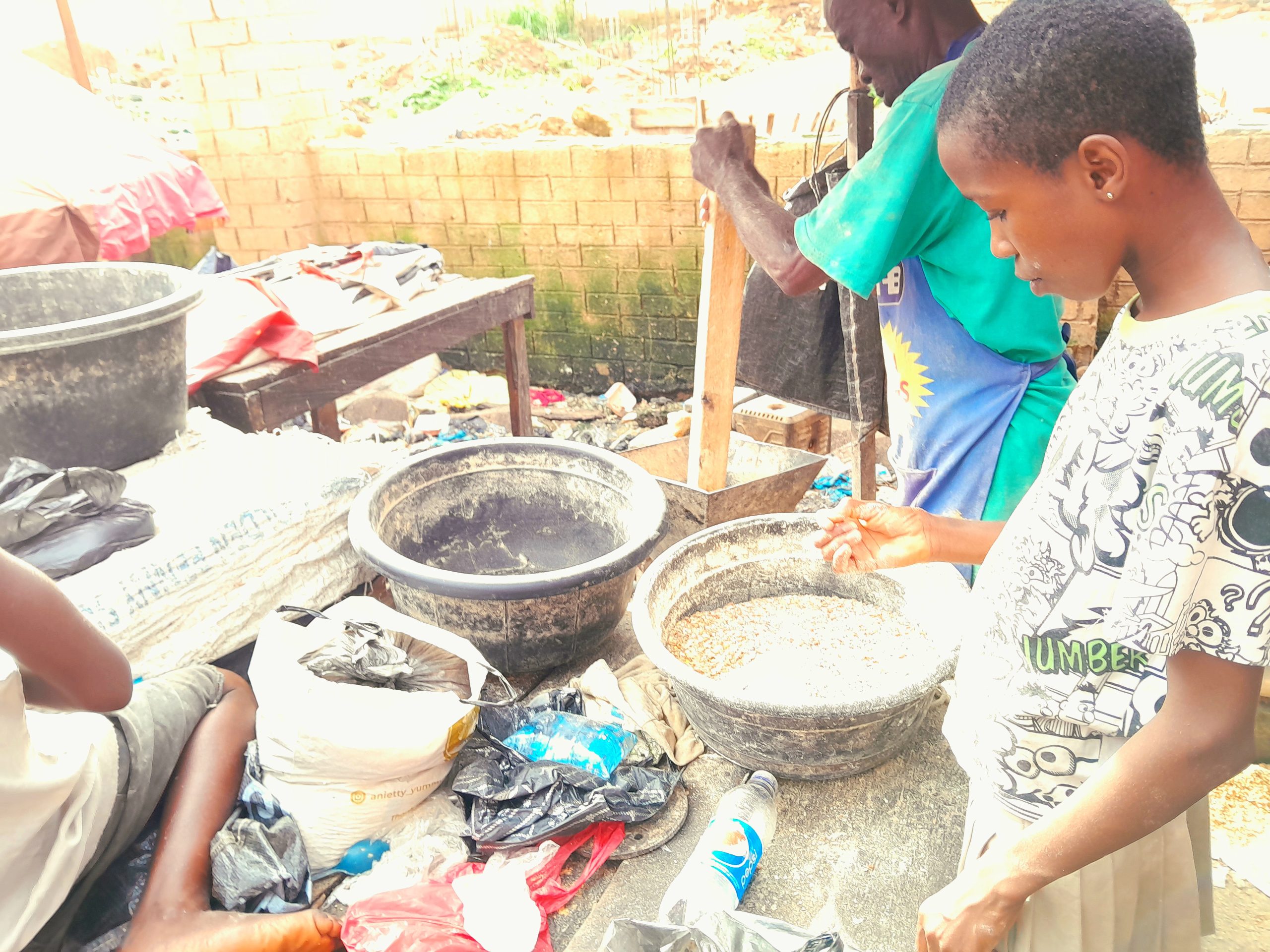By : Harriet Ijeomah
Introduction
In Imo State alone, over 2,000 local food processors contribute significantly to greenhouse gas emissions, posing a serious threat to both the environment and public health. Food production and processing—spanning from the initial stages of food handling to packaging and distribution—affect the environment in multiple ways. The diversified nature of the food industry means that these operations generate various types and quantities of waste, which, if not properly managed, can lead to severe pollution problems and increased greenhouse gas emissions.
The Problem
The global food system is a major contributor to greenhouse gas (GHG) emissions, accounting for approximately 26% of total emissions. This includes not only the production phase but also post-farm processes such as processing and distribution. Despite the significant role the food system plays in environmental pollution, viable technological solutions to reduce its impact remain elusive.
In local markets across South-East Nigeria, including the Ekeonuwa Market in Owerri, Imo State, small-scale milling businesses are common. These millers, like Ogbonnaya Ike, rely on fuel-powered machines to grind various food products such as wheat, oatmeal, soybean, maize, beans, and spices. While these operations are crucial for the livelihoods of millers and the communities they serve, they also contribute to environmental degradation through emissions and waste.

The Miller’s Dilemma
Ogbonnaya Ike, a mid-aged miller at Ekeonuwa Market, has been in the milling business for 12 years. After losing his job at a private company in Port Harcourt, he invested his savings in purchasing grinding machines. These machines have provided a steady source of income for him and his family, despite the challenges of rising fuel costs and frequent machine repairs.
On average, Ogbonna makes about 5000 Naira daily. However, a significant portion of this income is spent on fuel, which currently costs 950 Naira per liter. Ogbonna’s milling operation consumes 2 liters of fuel daily, contributing to the release of approximately 4.4 kg of carbon dioxide per day. Extrapolating this data to the entire Imo State, where there are an estimated 85 markets with over 26 millers each, the daily carbon dioxide emissions from local milling could exceed 114.4 kg.
In addition to air pollution, noise pollution from these grinding machines has also taken a toll on Ogbonna’s health. He reports significant hearing loss, a condition that is likely caused by prolonged exposure to the loud noise generated by his milling equipment. This issue highlights the broader health risks associated with small-scale milling operations, which are often overlooked.
Waste Management Issues
The waste generated during food processing in these markets is another significant concern. According to market leaders, the byproducts of milling are often not properly disposed of, leading to environmental degradation and public health risks. The decaying waste can contaminate local water sources and contribute to the spread of disease, further exacerbating the environmental impact of these operations.

The Need for Sustainable Solutions
The environmental and health challenges posed by small-scale food processing in Imo State and across South-East Nigeria require urgent attention from innovators, policymakers, and social development organizations. There is a critical need for research and investment in more efficient waste treatment methods and advanced manufacturing practices that minimize waste and emissions.
Innovations such as energy-efficient milling machines and better waste management systems could significantly reduce the environmental footprint of local food processors. Additionally, the adoption of renewable energy sources for milling operations could help mitigate the reliance on fossil fuels, further decreasing greenhouse gas emissions.
Conclusion
While small-scale milling operations play an essential role in the food supply chain and provide livelihoods for many, their environmental and health impacts cannot be ignored. Addressing these challenges requires a concerted effort from all stakeholders, including innovators, social development organizations, and government agencies. By implementing sustainable practices and technologies, we can reduce the environmental impact of food processing and create a healthier, more sustainable future for our communities.
Recommendations
- Innovation and Research: Encourage research into energy-efficient technologies and waste management solutions tailored to small-scale food processors.
- Policy Advocacy: Advocate for policies that support the adoption of sustainable practices in the food processing industry, including subsidies for renewable energy use.
- Community Engagement: Engage local communities in discussions about the environmental impact of food processing and the importance of proper waste disposal.
This report serves as a call to action for innovators and social development organizations to address the environmental and public health impacts of local food processing and work towards sustainable solutions that benefit both people and the planet.









